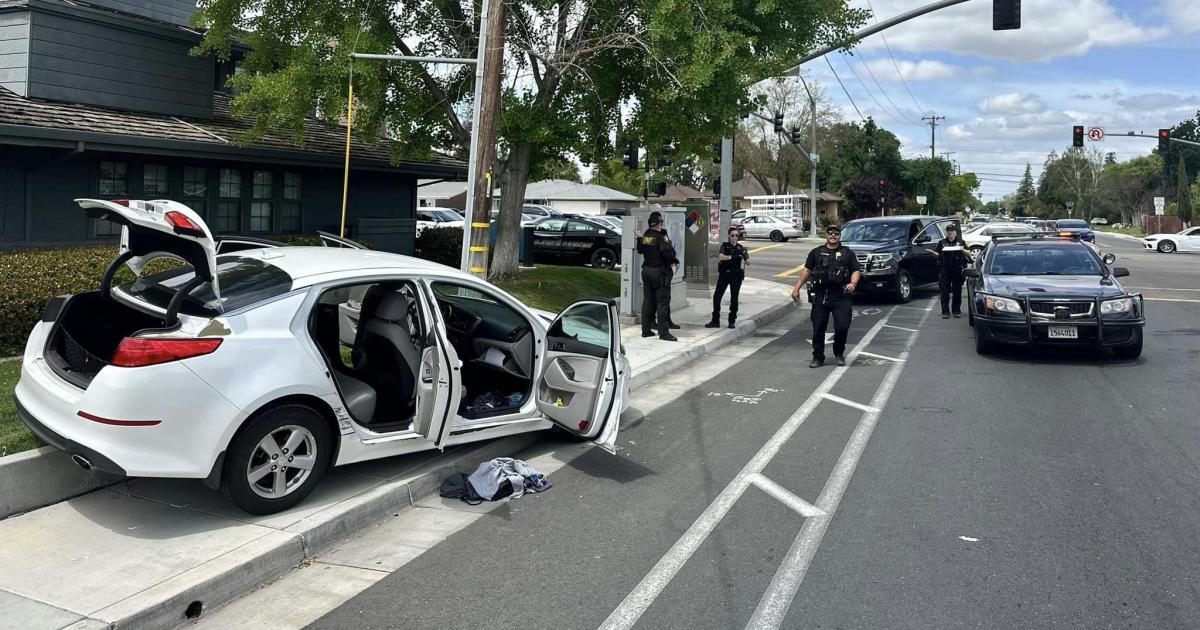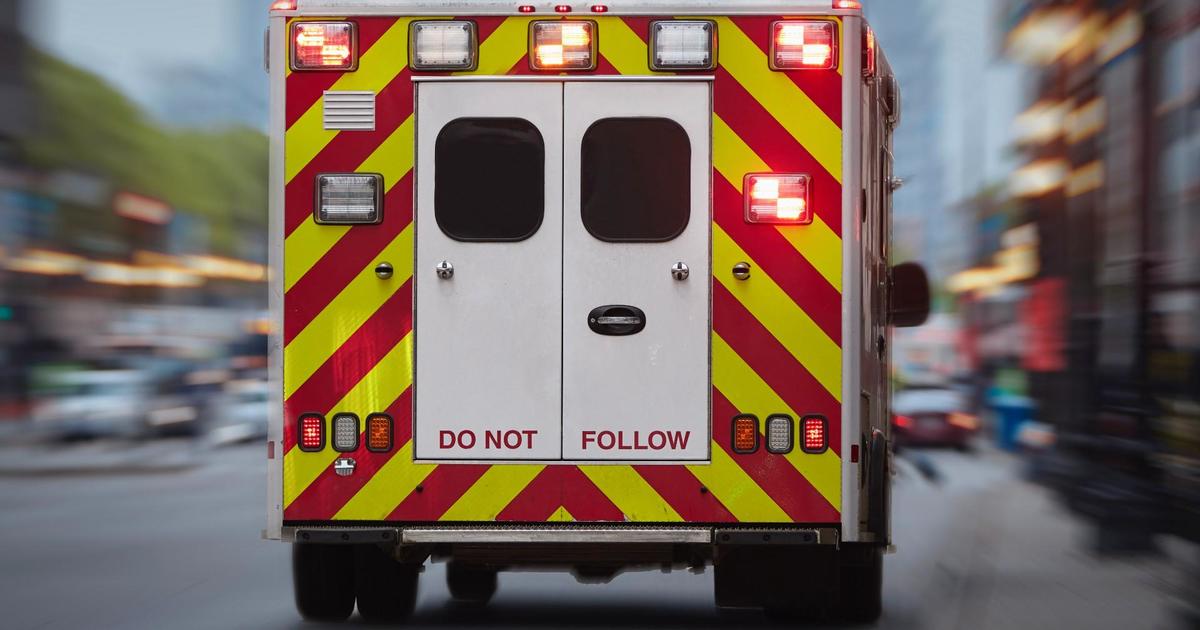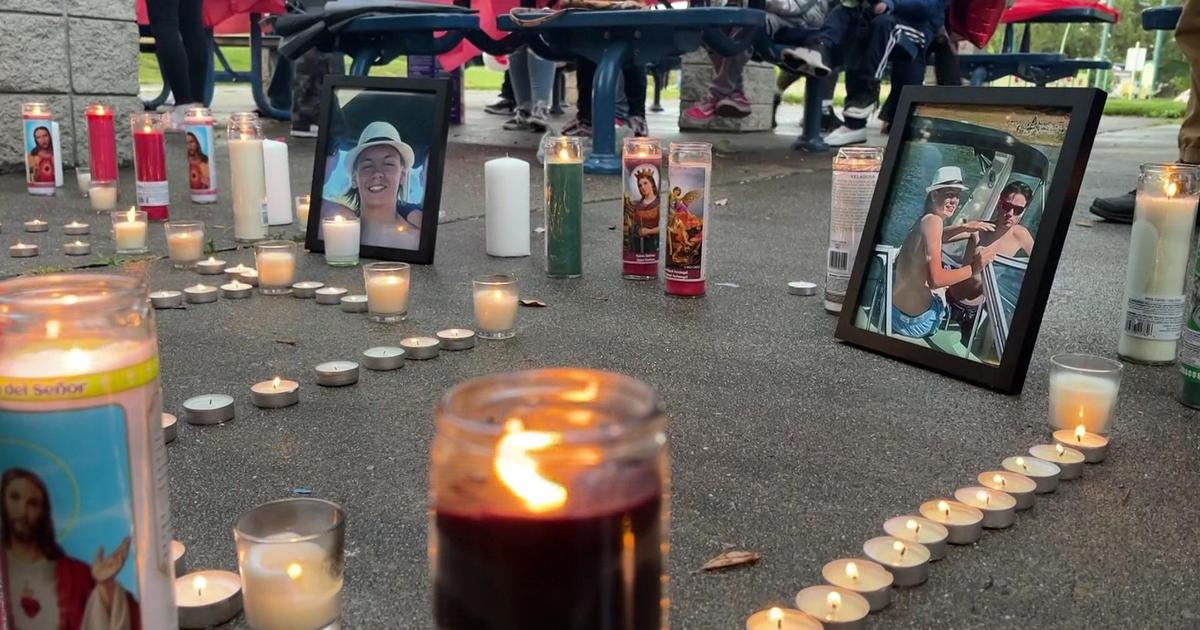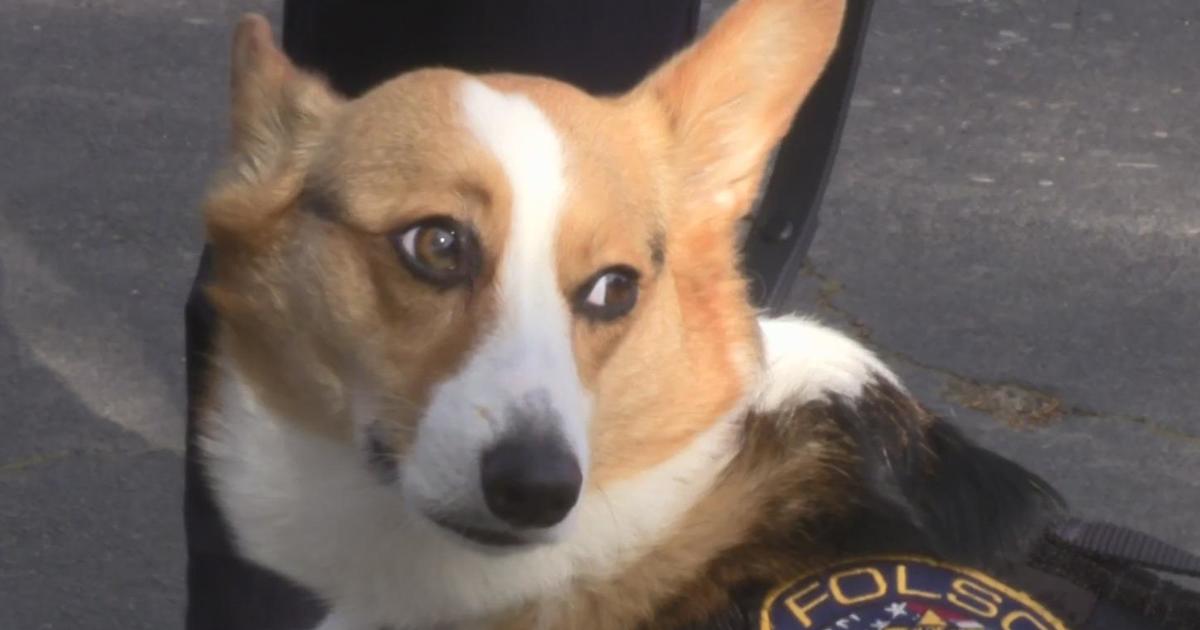Beyond a Sacramento traffic stop: Getting Answers from all sides
SACRAMENTO -- Videos of police interactions at a traffic stop have made headlines before, but oftentimes, the stories don't go beyond what's on film.
CBS13 received a video from a Sacramento man just over a month ago and chose to wait to air it in order to get answers beyond the few minutes filmed to understand why the driver feared for his life and what is being done to mitigate those concerns.
We met Eric Murphy, the driver in the video, who said he was pulled over on his way home from church, with his "Aunt GG" in the passenger seat, because of expired tags. He shard the story of his fear and what followed the police lights in his rearview mirror.
"There's something that needs to be said about excessive force that seems to be constantly happening, and I would say happening a lot to the Black adults, the Black adult males in this city," said Murphy.
Murphy told CBS13 that when he sees police lights in his rearview mirror, he thinks of people like George Floyd and Tyre Nichols, who died in police encounters.
"I've seen arrests before, and it doesn't always work out," Murphy said.
He brought the video to CBS13 with the hope of sharing his concerns about the experience. It led to deeper questions about the fear and if there are solutions to ease tensions between the community and law enforcement.
Sacramento police: "There's really nothing routine about a traffic stop"
Sacramento Police Officer Anthony Gamble spoke extensively with CBS13, walking through training protocols and expectations of a traffic stop.
He couldn't speak, specifically, to Murphy's experience, only that the video showed a "community member getting stopped by our officers." Instead, he went in-depth about the procedures that Sacramento police officers are trained on — that starts with understanding the driver may have no experience with law enforcement.
"I think it's in the back of an officer's mind, that 'I'm stopping a vehicle that has somebody inside of it, that may never have been stopped by police before.' They may have been stopped 20 times. They may not have a trust of the police. They may have great trust of the police. You just never know when you're walking up to a car who you're coming into contact with," Gamble said.
Gamble leads the department's implicit bias training and said the training considers the unknown of a traffic stop on both sides.
"The reality is, if somebody wants to cause harm to an officer, they know it before I know it," Gamble said.
Things drivers can do to ensure a traffic stop goes smoothly, Gamble says, can start when the driver is pulled over. Officers have an obligation to contact the driver, introduce themselves, introduce the department, and tell the driver why they have been stopped.
A new California law that went into effect in 2024 states that officers must state the reason for a traffic stop before asking questions.
The goal was to improve transparency and reduce the number of pretextual stops, which occur under the guise of a minor traffic violation but provide officers with an opportunity to investigate an unrelated suspicion.
Gamble said the Sacramento Police Department has been training with this policy for years before the law was official — no more "Do you know why I pulled you over?"
"During a traffic stop, officers have effected a detention. There's a common misconception that people believe that the detention only requires [them] to stay in the vehicle, but the law states the officer has every right to ask the driver to step out of the vehicle," Gamble said.
ACLU: "I found some disturbing disparities"
To get answers beyond the video, CBS13 went to the American Civil Liberties Union (ACLU) of Northern California. The ACLU is behind multiple proposals to limit interactions between community members and law enforcement through traffic stops. One of those pushes was inspired by Sacramento County statistics.
"I analyzed the data the Sacramento sheriff's office sent to the Department of Justice, and I used the 2019 data, and I found some disturbing disparities such as Black people in Sacramento County got pulled over at a larger disparity than White residents," said Marshal Arnwine, the legal policy advocate at the ACLU of Northern California.
He explained that the disparity is alarming, in his research, because U.S. Census Bureau data shows that Black residents only make up around 11% of Sacramento County and White residents make up around 61%.
"In 2019, for every 1,000 Black people living in areas where the sheriff's office provides law enforcement, the sheriff deputies stopped an estimated 149 for traffic violations, a rate nearly 5 times greater than for White people." said Arnwine.
The recommendation Arnwine is spearheading within Sacramento County is to end traffic stops from the Sacramento County Sheriff's Office that are minor, and, instead, he suggests to use community-based organizations to eliminate those interactions.
Already, he's presented the recommendation to the Sacramento County Board of Supervisors.
"I'm very hopeful. That's the reason I do this work. I definitely believe that change can happen. We have new leadership in the sheriff's department. We have new leadership in the district attorney's office. This is a collaborative effort," Arnwine said.
"One's perception is one's reality"
Murphy's story of fear is one that we've heard before, in some capacity: a driver, who is Black, pulled over by officers who were not, and tensions go up from there. He told CBS13 he believed he could ask for a sergeant before getting out of the car, as the officers are heard on video telling him to do.
"Whenever I get pulled over, I'm going to have an attitude about it because I know what's going to transpire," Murphy said.
In the video, officers tell Murphy to roll down all of his windows. He says he won't. Is that legal? This kind of question prompted more questions about the expectations and rules of a traffic stop.
Ultimately, it's not against the law to keep all the windows up, but there's more to that concern Murphy shared with us. He said he saw videos of drivers who rolled down their windows and didn't survive the interaction. He was afraid, he said, that would happen to him.
I took the general concern to Officer Gamble, who answered, in depth, about perception.
"The one thing that we talk about quite often is that one's perception is one's reality. So, the perception of law enforcement is that we're the longest arm of government," he said. "Some people may have that fear of the authority as a whole, maybe not a fear of the officer as me, Officer Anthony gamble, but the fear of the establishment. That's a real thing. People have that fear. Though, it may be generational, it may be prior experience, it may be things people see on YouTube or Instagram or social media. We have to understand that's the world we're operating in."




